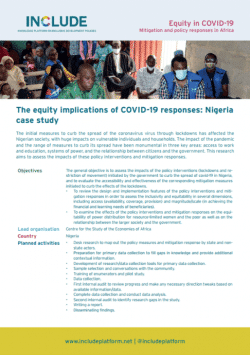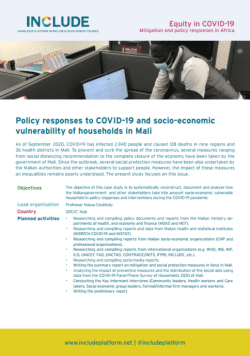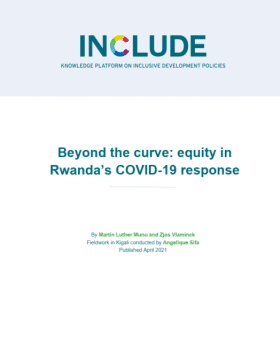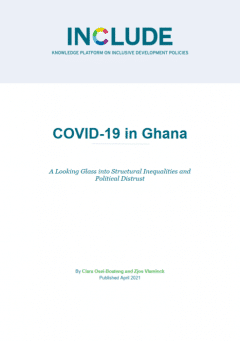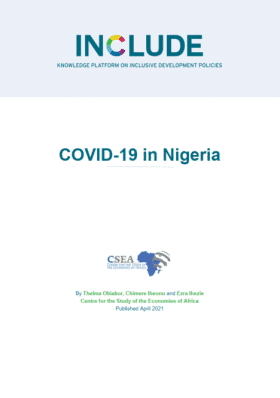
This report analyses the mitigation strategies and policy responses deployed by the Nigerian government to address the pandemic and examines its equitability in the context of Nigeria’s prevailing vulnerabilities. While the government was prompt to address the health and socio-economic dimensions of the pandemic, the lockdowns, school closures and other emergency restrictions were imposed hurriedly without adequate preparation and poor consultation with appropriate stakeholders. Consequently, this has had a detrimental effect on the country but pertinently on the most vulnerable people. The government’s support schemes were often inadequate, failing to consider the needs of the most affected and vulnerable groups. Informal sector workers, who felt the immediate effect of the movement restrictions as it upended their livelihoods, could not access support measures because they mostly targeted/recognised formal labour. For education, the distance learning options available were not cognisance of the enormous digital literacy and infrastructure divide in the country. Therefore, distance learning options were exclusionary for the vulnerable and marginalised students.
